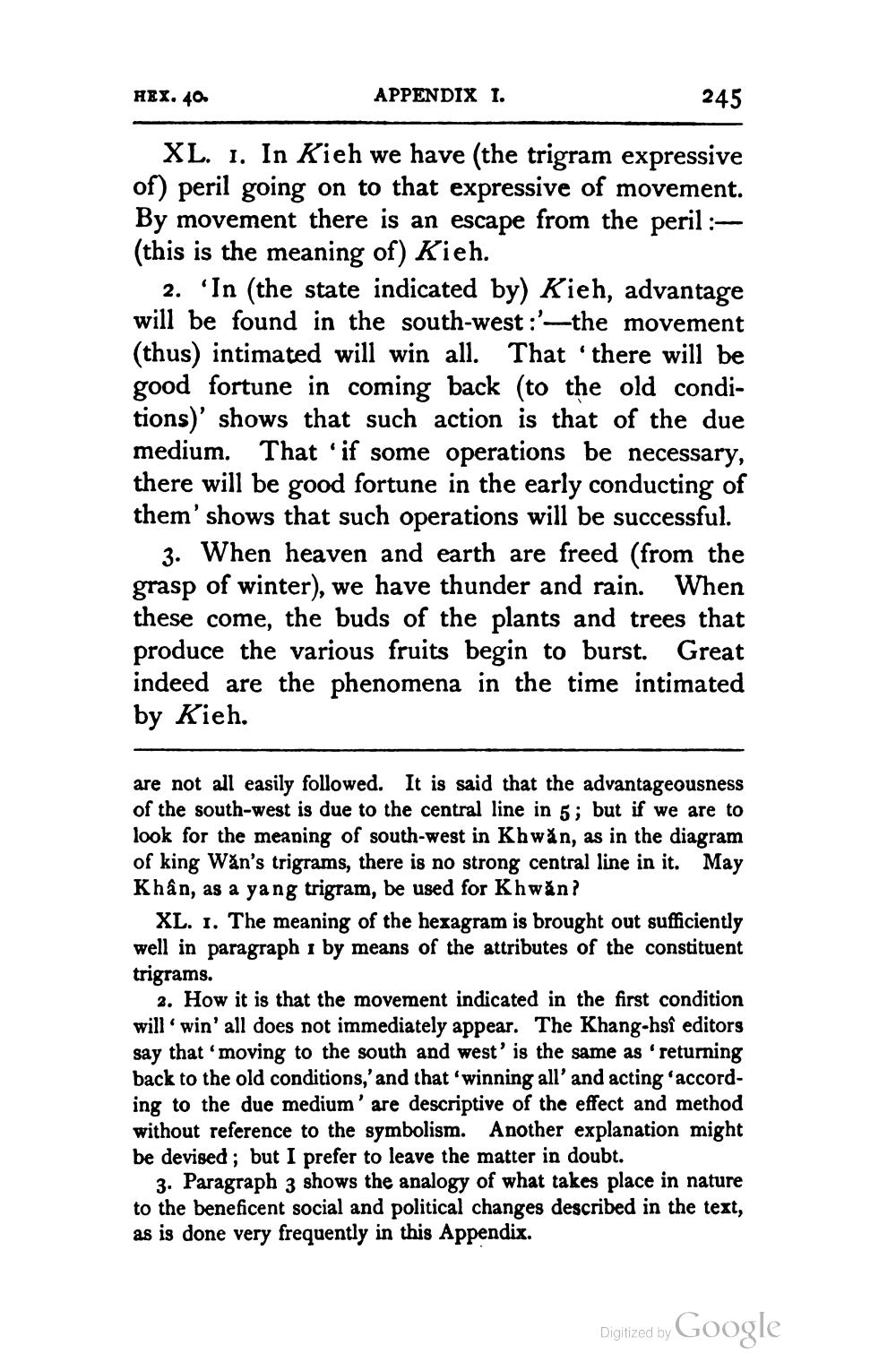________________
REX. 40.
APPENDIX I.
245
XL. 1. In Kieh we have (the trigram expressive of) peril going on to that expressive of movement. By movement there is an escape from the peril:(this is the meaning of) Kieh.
2. 'In (the state indicated by) Kieh, advantage will be found in the south-west :'--the movement (thus) intimated will win all. That 'there will be good fortune in coming back (to the old conditions)' shows that such action is that of the due medium. That 'if some operations be necessary, there will be good fortune in the early conducting of them' shows that such operations will be successful.
3. When heaven and earth are freed (from the grasp of winter), we have thunder and rain. When these come, the buds of the plants and trees that produce the various fruits begin to burst. Great indeed are the phenomena in the time intimated by Kieh.
are not all easily followed. It is said that the advantageousness of the south-west is due to the central line in 5; but if we are to look for the meaning of south-west in Khwăn, as in the diagram of king Wăn's trigrams, there is no strong central line in it. May Khân, as a yang trigram, be used for Khwån?
XL. I. The meaning of the hexagram is brought out sufficiently well in paragraph 1 by means of the attributes of the constituent trigrams.
2. How it is that the movement indicated in the first condition will win' all does not immediately appear. The Khang-hsî editors say that moving to the south and west' is the same as 'returning back to the old conditions, and that'winning all' and acting according to the due medium' are descriptive of the effect and method without reference to the symbolism. Another explanation might be devised; but I prefer to leave the matter in doubt.
3. Paragraph 3 shows the analogy of what takes place in nature to the beneficent social and political changes described in the text, as is done very frequently in this Appendix.
Digitized by Google




